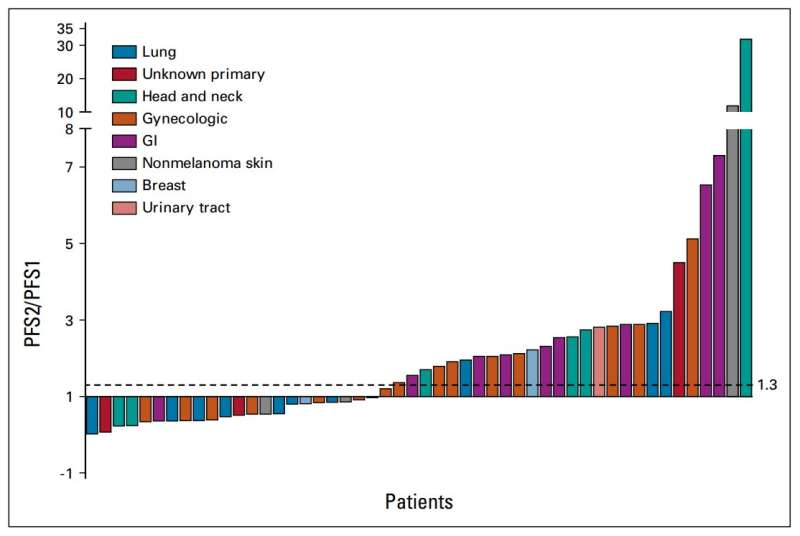
In a recent University of Kentucky Markey Cancer Center clinical trial, patients with advanced cancer experienced improved outcomes when their treatments were directed by a molecular tumor board.
Molecular tumor boards (MTB) are composed of an interdisciplinary team of medical experts who use tumor genomic analysis to help oncologists choose cancer therapies tailored to each patient’s individual needs.
When a physician requests a MTB review, patients’ tumors are tested for mutations using next-generation sequencing. The board then evaluates the report and may recommend three types of potential care: therapies for that patient’s cancer type that are approved by the Food and Drug Administration (FDA), FDA-approved therapies in another tumor type and potential clinical trials.
Results published in JCO Precision Oncology Sept. 14 demonstrate that the MTB review process improves overall survival rates for patients with advanced cancer.
Patients participating in the phase II clinical trial received therapy directed by UK Markey Cancer Center’s MTB between 2017 and 2020.
The study provides important data that supports the clinical use of MTBs in cancer care, says study author Jill Kolesar, Pharm.D., a professor in UK’s College of Pharmacy who directs Markey’s Precision Medicine Center and co-directs the MTB.
“As personalized cancer therapies are quickly becoming approved for multiple molecular targets, MTBs may help oncologists choose the most effective therapy option,” said Kolesar. “The study suggests that the precision medicine expertise offered by a MTB can lead to better outcomes even for patients with advanced cancer who have already received treatment.”
All 93 enrolled patients had advanced cancer with tumors that had actionable mutations, or DNA mutations that can be targeted with an available treatment.
The study measured their progression-free survival, or the length of time during and after a treatment that a patient lives with cancer, but it does not get worse. By comparing the MTB-directed therapy with the patients’ immediately prior therapy, the study allowed patients to serve as their own control.
“When treated with MTB-directed therapy, most patients experienced improved progression-free survival compared with immediately prior treatment. MTB-directed targeted therapy may be a strategy to improve outcomes for patients with advanced cancer,” the study concludes.
Launched in 2016, the UK Markey Cancer Center MTB includes representation from medical oncology, surgical oncology, pathology, radiology, genetic counseling and clinical pharmacology.
Source: Read Full Article